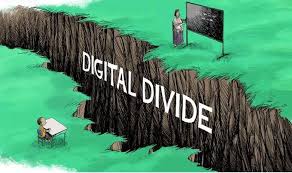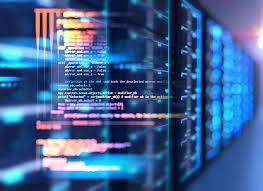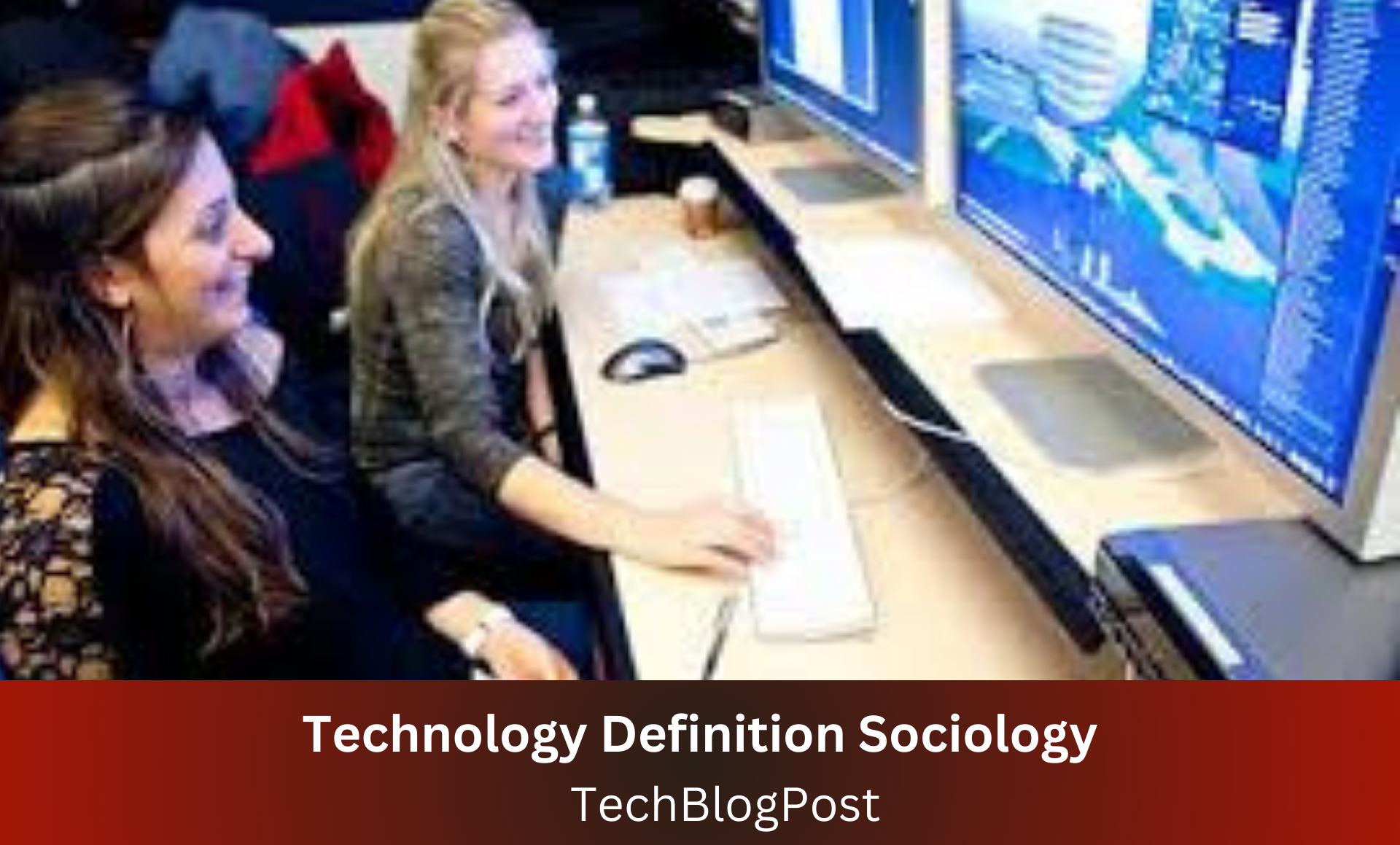The Intersection of Technology and Sociology: Understanding the Impact on Society
The technology definition sociology rapid evolution of technology has fundamentally altered the way we interact, communicate, and live our lives. As technological advancements continue to redefine our world, it is essential to explore the intricate relationship between technology and sociology. In this blog post, we will delve into the impact of technology on social structures, the implications of the digital divide, the role of social media in shaping identity, and the ethical considerations regarding privacy in the digital age.
Technology and Social Structures
Technology plays a crucial role in shaping norms by influencing the way individuals communicate, behave, and interact with one another. From the rise of social media platforms to the prevalence of online communities, technology has redefined the boundaries of social interactions. Moreover, technology has the power to disrupt traditional social hierarchies by providing individuals with new avenues for expression and empowerment. Additionally, technology has transformed social institutions by revolutionizing education, healthcare, and governance.
Technology Definition Sociology in Digital Divide and Inequality

The digital divide refers to the gap between individuals who have access to technology and those who do not. This digital disparity exacerbates socioeconomic inequality by limiting opportunities for marginalized communities. The lack of access to technology can hinder educational and economic opportunities, perpetuating cycles of poverty and inequality. Addressing the digital divide is essential to ensure that all members of society have equal access to the benefits of technological advancement.
Social Media and Identity
Social media platforms have become integral to the construction of modern identity, shaping how individuals perceive themselves and others. The curated nature of social media profiles allows individuals to craft their online identities, presenting a selective version of themselves to the world. This phenomenon raises questions about authenticity, self-esteem, and the impact of social media on interpersonal relationships. Understanding the complex interplay between technology and identity is crucial in navigating the digital landscape responsibly.
Privacy and Ethical Considerations
The digital age has brought about significant challenges regarding privacy and ethical dilemmas surrounding technology. With data breaches, surveillance practices, and the rise of artificial intelligence, safeguarding privacy has become increasingly complex. Ethical considerations related to technology advancements, such as the use of algorithms and artificial intelligence, raise questions about accountability, transparency, and the impact on society. Striking a balance between technological innovation and societal values is essential to ensure that technology benefits humanity.
What is Technology Definition Sociology?

Technology encompasses the tools, machines, and systems created by humans to solve problems, enhance efficiency, and improve the quality of life. This broad definition includes everything from simple tools like hammers and knives to complex systems like computers and the internet. As technology evolves, it shapes and is shaped by societal needs and values.
The Sociological Definition of Technology
From a sociological perspective, technology is not just about tangible gadgets and machinery but also includes the processes and knowledge behind their creation and use. Sociologists examine how technology affects social interactions, cultural norms, and societal structures. They consider how technological advancements alter power dynamics, economic systems, and even individual identities.
Key Areas of Sociological Interest in Technology
- Social Interaction and Communication: The advent of social media platforms, smartphones, and instant messaging has transformed how people interact. Sociologists study these changes to understand their effects on relationships, community building, and social capital.
- Cultural Norms and Values: Technology influences cultural norms and values by introducing new ways of thinking and behaving. For instance, the internet has democratized information access, challenging traditional authority and altering cultural perceptions of knowledge and expertise.
- Economic and Labor Structures: Technological advancements impact labor markets and economic structures. Automation and artificial intelligence, for instance, are reshaping industries, leading to job displacement in some areas and the creation of new opportunities in others. Sociologists analyze these trends to understand their implications for social inequality and workforce dynamics.
- Power and Surveillance: Technology also plays a critical role in power dynamics and surveillance. The rise of big data and digital surveillance technologies has raised concerns about privacy, security, and the potential for abuse by state and corporate actors. Sociologists explore these issues to advocate for policies that balance technological benefits with ethical considerations.
- Identity and Self-Perception: The digital age has brought about new forms of identity and self-perception. Online identities, virtual realities, and digital footprints influence how individuals perceive themselves and others. Sociologists study these phenomena to understand their impact on personal and collective identities.
Theoretical Approaches in the Sociology of Technology
- Technological Determinism: This theory posits that technology shapes society in deterministic ways, implying that technological development drives social change. Critics argue that this perspective overlooks human agency and the reciprocal relationship between society and technology.
- Social Construction of Technology (SCOT): SCOT theory suggests that society shapes technological development. According to this view, social groups influence which technologies are developed and adopted based on their needs, values, and power structures.
- Actor-Network Theory (ANT): ANT explores the complex interactions between humans and non-human actors (like technology) in a network. It highlights how technology and society co-construct each other, emphasizing the agency of both.
Technology Definition
(noun) The application of knowledge, technology, and tools to adapt and control the physical environment and material resources to meet wants and needs.
(noun) The accumulated technology of a society or culture.
Technology Examples
- Computers.
- How to start a fire.
- Technology for making steel. wheel woozy
- British English – /tek-nOl-uh-jee/
International phonetic alphabet
- American English – /tɛkˈnɑlədʒi/
- British English – /tɛkˈnɒlədʒi/
Usage notes
- Plural: technology
- A to them Greetings More Enthusiasm Technology and Technophobes are against technology.
- (noun) An engineer is (adverb) (adjective) technically proficient in technical applications.
Related Citations
“About 5,000 years ago, people developed plow farming. By attaching oxen and other large animals to the plow, farmers could increase production. Thanks to technological innovations, the surplus has increased again. As wealth increased, social hierarchies became more defined. Agrarian societies developed religious beliefs that justified increasing inequality.
People came to believe that kings and queens ruled by “divine law.” They regarded large landowners as “lords.” Additionally, if you were born into a farming family, you and your children are more likely to remain farmers. If you were born a lord, you and your children will likely remain lords. In the vocabulary of modern sociology, stratification in agricultural societies is said to have been based on belonging rather than merit” (Brym and Lie 2007: 225).
Technology Definition Sociology
Overview of Technology Definition Sociology
Technology definition sociology is an interdisciplinary field that explores the relationship between technology and society. It examines how technological innovations influence social structures, human behavior, and cultural norms. This field also considers how society shapes technological development, creating a dynamic interplay between technological advancements and social change.
Relevance and Importance
Understanding the sociology of technology is crucial in today’s rapidly advancing world. As technology becomes increasingly integrated into every aspect of life, it is essential to understand its impacts on social interactions, economic systems, and cultural practices. This knowledge can help us navigate the ethical and practical challenges posed by new technologies, ensuring they contribute positively to society.
Historical Context

Evolution of Technology and Society
The relationship between technology and society has evolved significantly over time. From the invention of the wheel to the rise of the internet, each technological breakthrough has reshaped social structures and daily life. This section will explore key historical milestones and their social implications.
Key Theorists and Contributors
Several sociologists and theorists have significantly contributed to the understanding of technology’s role in society. Notable figures include Karl Marx, who examined the impact of industrialization on social classes, and Marshall McLuhan, who explored the effects of media technologies on human perception and communication.
Key Concepts in Technology Definition Sociology
Technological Determinism
Technological determinism is the theory that technology shapes society in profound and often predetermined ways. This concept suggests that technological innovations drive social change, influencing everything from economic structures to cultural norms.
Social Construction of Technology
Contrasting technological determinism, the social construction of technology (SCOT) theory posits that society shapes the development and use of technology. According to SCOT, social groups influence technological innovation based on their needs, values, and power dynamics.
Actor-Network Theory
Actor-network theory (ANT) explores the networks of relationships between human and non-human actors, including technologies. This framework helps analyze how technologies and social actors co-construct each other, emphasizing the interconnectedness of technical and social elements.
Technology Definition Sociology Types and Categories
Communication Technologies
Communication technologies, such as the internet and mobile phones, have revolutionized how people interact. This section will discuss the evolution of these technologies and their impact on social relationships and communication patterns.
Transportation Technologies
Transportation technologies, from the steam engine to electric vehicles, have transformed mobility and economic activity. We will explore how these advancements have influenced urban development, global trade, and social dynamics.
Healthcare Technologies
Advancements in healthcare technologies, including medical imaging and telemedicine, have significantly improved patient care. This section will examine the social implications of these technologies, including issues of access and equity.
Information Technologies
Information technologies, such as computers and data analytics, have reshaped industries and daily life. We will discuss the role of these technologies in data management, decision-making, and the digital divide.
Symptoms and Signs
Digital Divide
The digital divide refers to the gap between individuals who have access to modern information and communication technologies and those who do not. This disparity has significant social implications, affecting education, employment opportunities, and social inclusion.
Technostress
Technostress is the stress experienced due to the use of technology. This phenomenon includes feelings of anxiety, fatigue, and overload resulting from constant connectivity and the pressure to keep up with technological advancements.
Cyberbullying
Cyberbullying is the use of digital technologies to harass, threaten, or humiliate individuals. This issue has become increasingly prevalent with the rise of social media and has severe social and psychological effects.
Causes and Risk Factors
Economic Disparities
Economic disparities often influence access to technology, contributing to the digital divide. Wealthier individuals and communities are more likely to afford and benefit from the latest technological innovations.
Educational Inequities
Educational inequities also play a role in technological access and literacy. Individuals with higher education levels are generally more adept at using technology and leveraging it for personal and professional growth.
Geographical Barriers
Geographical barriers, such as living in rural or remote areas, can limit access to high-speed internet and other technological resources, exacerbating the digital divide.
Diagnosis and Tests
Digital Literacy Assessments
Digital literacy assessments evaluate an individual’s ability to use technology effectively. These assessments can identify gaps in skills and knowledge, informing strategies to improve technological proficiency.
Technological Accessibility Audits
Technological accessibility audits assess how accessible technologies are to different populations, including those with disabilities. These audits help ensure technologies are designed and implemented in ways that are inclusive and equitable.
Treatment Options
Educational Programs
Educational programs aimed at improving digital literacy can help bridge the digital divide. These programs can be implemented in schools, community centers, and workplaces.
Policy Interventions
Policy interventions, such as subsidies for internet access and investments in technological infrastructure, can address economic and geographical barriers to technology access.
Support Services
Support services, including technical support and training programs, can help individuals and communities effectively use and benefit from technological advancements.
Preventive Measures
Promoting Digital Inclusion
Promoting digital inclusion involves ensuring all individuals and communities have access to the technologies they need to participate fully in society. This includes providing affordable internet access and digital literacy training.
Encouraging Responsible Technology Use
Encouraging responsible technology use involves educating individuals about the potential risks and benefits of technology, including issues related to privacy, security, and mental health.
Implementing Regulatory Frameworks
Implementing regulatory frameworks can help ensure technologies are developed and used in ways that protect public interests. This includes regulations related to data privacy, cybersecurity, and ethical AI use.
Personal Stories or Case Studies
Case Study: Digital Literacy Programs in Underserved Communities
This section will highlight successful digital literacy programs implemented in underserved communities, showcasing their impact on education, employment, and social inclusion.
Personal Story: Overcoming the Digital Divide
A personal story of an individual who overcame the digital divide through education and community support, illustrating the transformative power of technology when accessible to all.
Expert Insights
Interview with a Sociologist
An interview with a sociologist specializing in technology and society, discussing current trends, challenges, and future directions in the field.
Perspectives from Technologists
Perspectives from technologists on how they consider social implications in their work and the importance of designing technologies that benefit society.
Conclusion
Summary of Key Points
A summary of the key points discussed in the article, emphasizing the importance of understanding the sociology of technology and its impact on society.
Call to Action
A call to action encouraging readers to educate themselves about the social implications of technology and to advocate for policies and practices that promote digital inclusion and responsible technology use.
FAQs;
Q. How does technology shape cultural practices?
Technology profoundly shapes cultural practices by influencing how people communicate, work, socialize, and perceive the world. This impact can be observed in various aspects of daily life and across different cultures.
Q. What are the ethical concerns surrounding artificial intelligence?
The ethical concerns surrounding artificial intelligence (AI) are diverse and complex, encompassing several key areas.
Q. How can individuals navigate the digital landscape responsibly?
Navigating the digital landscape responsibly involves a combination of awareness, ethical behavior, and proactive measures to ensure personal safety and contribute positively to the online community.
